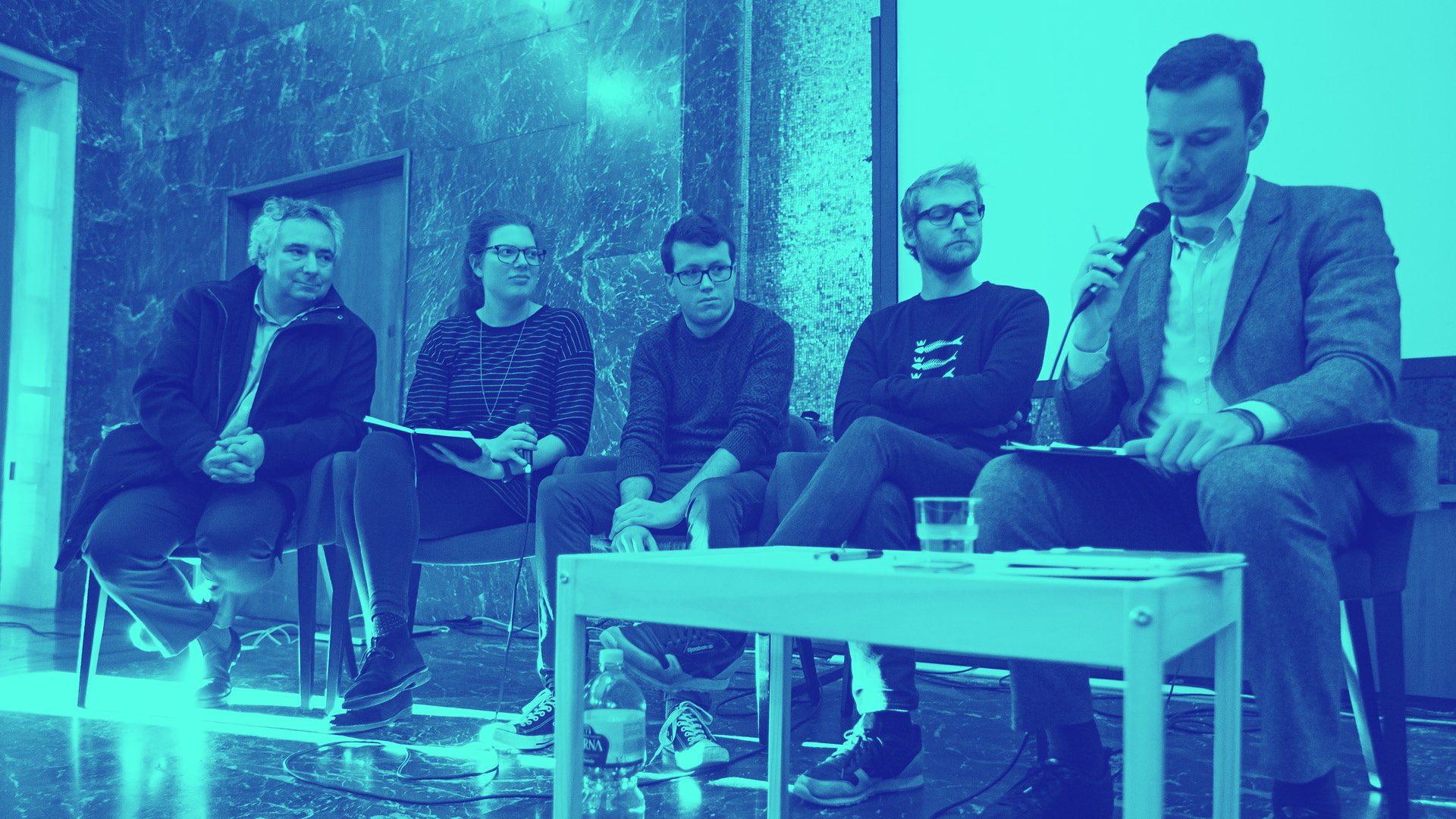ROUND TABLE
DIGITAL TOOLKIT
New technologies and media relate to digital governance, e-learning, information, automation, hacking, artificial intelligence, algorithms and the way we spend free time. To understand their impact we need to take a closer look at the growing hybridisation of urban space and digital media, and its effect on mobility, information access, data management, empowerment, privacy and surveillance.
TERMS
humanism
demystification
echo chamber
crowd building
error
seamless
SPEAKERS
MARCO BRIZZI, ALEX FABREGAS, INTE GLOERICH, JACOPO MARELLO, PIERRE PASLIER, TIM TERPSTRA, KATÍA TRUIJEN
Digital Toolkit roundtable with Marco Brizzi, Alex Fabregas, Inte Gloerich, Jacopo Marello, Pierre Paslier, Tim Terpstra and Katía Truijen focused on the politics of technology and oscillated between arguments for seamless integration and the need of demystification of the digital realm in everyday life.—What are the limits of the digital toolkit and what kind of language do we need to define them became the central questions of the debate.
We still miss the right language to discuss the broader influence of technology as it hides itself behind an opaque and positively biased language that is difficult to criticize. Words such as sharing economy, startup, cloud or smart city are often designed to not talk about material implications of specific technologies that constitute them. Acknowledging how these systems work and looking at them from a humanistic point of view were mentioned as crucial to not give up on reality, but aim to decode the power structures that hide behind them. The majority of the speakers agreed that we should not expect developments including AI and big data, driven by huge companies, to bring the solution to real world problems. On the contrary, in these changing power structures a new approach to resistance and protest towards these practices was defined as a much needed response to new forms of exploitation.


We need plurality to retain our agency and respond to the simplification of reality caused by echo chambers. Could we think of them as mini digital minorities and find a form of positive ‘digital gentrification’ that would break this separation currently polarizing both the digital and the physical realms? What role could language play in the transition to this plurality?
An emotionally diverse set of words, including ones with negative charge could help us imagine what can go wrong in the future and prepare for potential implications. We should not forget that pessimism too has an idealistic dimension; it is necessary to have hope for the future. Critical terms should assist us in poking through technology and making its implications more malleable. Errors and glitches are crucial in this process. We need to celebrate them, because they are the unique moment of demystification, which shows the material reality behind technology and how it influences the way we think. As Inte Gloerich suggested, we should aim to to find a way to take apart Facebook in such a way that a child could do it.
An emotionally diverse set of words, including ones with negative charge could help us imagine what can go wrong in the future and prepare for potential implications.
As argued by Tim Terpstra understanding digital as an inseparable part of our culture can also cancel an estranging separation from the digital realm that keeps it in the circle of specific expertise. It is already so ingrained in our lives that we should not delegate it to others, but actively engage with it. Only in this way of common engagement and crowd-building we will be able to reach a vision proposed by Alex Fabregas that will democratize production and allow us to build objects and cities collectively.